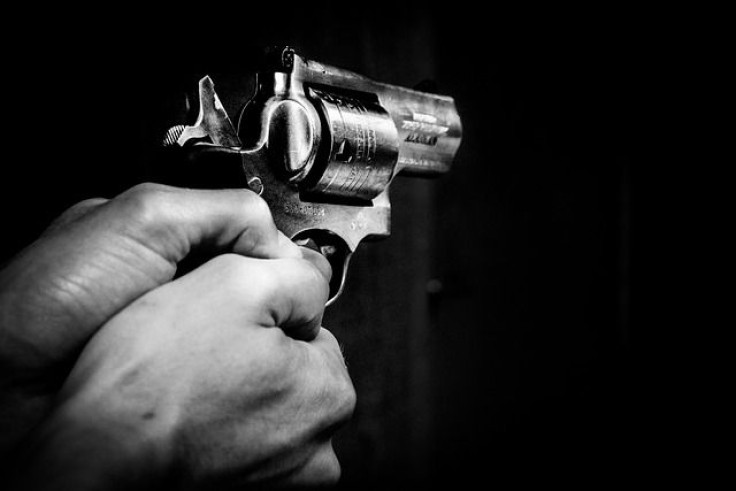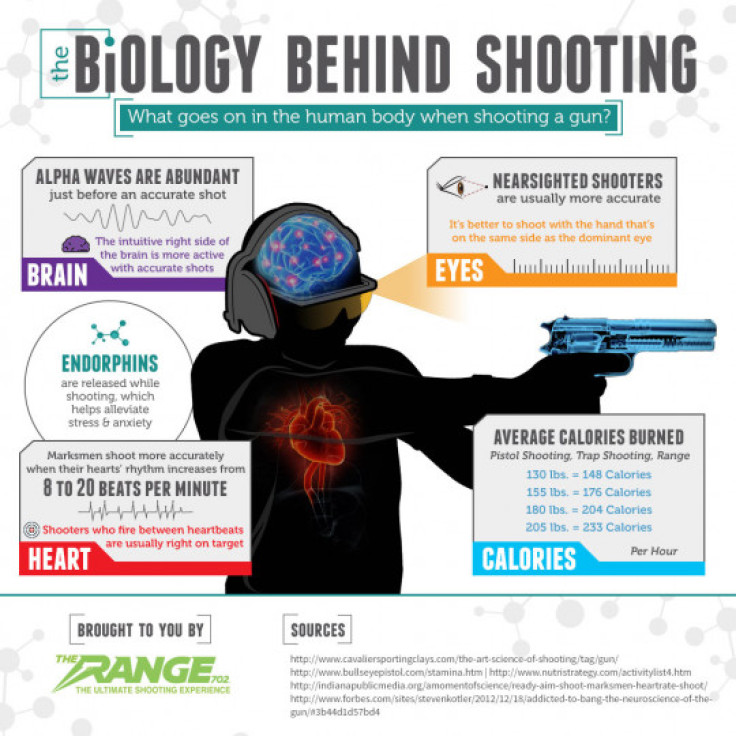Addicted To Guns? Here’s How Using A Firearm Affects Your Biology

Guns are one of the most deadly weapons known to man, with the Centers for Disease Control and Prevention reporting that about 33,736 people die from gun shots each year. While most of us understand what happens to a person who has been shot, how firearms affect the biology of the shooter is more mysterious. Here’s a short run-through of what happens to your body when you pull the trigger.
Despite their clear danger, many people enjoy firing guns in their spare time as a form of entertainment, and there may be a biological reason. When you fire a gun, your body releases hormones called endorphins, Forbes reported. These hormones promote a calm, relaxed feeling, and although they are meant to help alleviate the stress and anxiety associated with firing such a powerful weapon, they can also induce a pleasurable “high-like” sensation. These are the same hormones that are released when we have sex or use certain drugs, so it’s easy to see how some can get hooked on the feeling of using a gun.
Read: These 3 Gun-Violence Laws Have Significantly Cut Down On Firearm Deaths
In addition to a flood of hormones, shooting a gun can also burn calories — a surprising amount. For example, the average 130-pound shooter will burn about 148 calories per hour at the shooting range, while heavier shooters clocking in at around 205 pounds can burn as many as 233 calories an hour.
Guns also affect the brain; right before you fire the gun, alpha waves in the brain are abundant in order to improve the shooter's accuracy. Along with increasing accuracy, these specific types of brain waves are also associated with creativity and alleviating depression, Psychology Today reported. In addition, shooting also stimulates the right side of the shooter’s brain in an effort to help them get the most accurate shot possible.
See Also:
Gun Safety Needs Uniform Laws To Work, As Firearm Deaths Still Show Huge Racial Divides
States With More Gun Owners Also Have Higher Suicide Rates, Study Finds




























